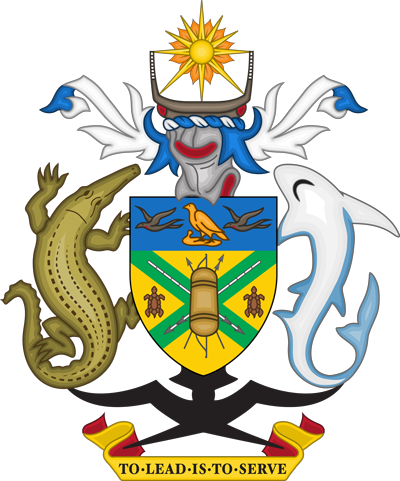

NRH and GSH records increase in diarrhoea cases
The National Referral and the Good Samaritan Hospitals have noted increase in the number of diarrhoea cases presenting to outpatient and emergency departments in the past two weeks.
While total of 17 acute watery diarrhoea cases reported by NRH between 29th of November and 5th of December alone, the threshold to pass before outbreak is declared is 50 cases and above for two consecutive weeks. Thus the use of term increase. NRH is closely monitoring the number of cases.
Good Samaritan Hospital on the other hand reported increases of diarrhoea cases from 27 cases in the week of 22nd to 28th of November to 84 cases in the week of 29th November to 5th of December. With a threshold of 45 cases for 2 consecutive weeks before declared as an outbreak, should number of cases surpass 45 cases this week, then an outbreak of diarrhoea is with communities along the Guadalcanal plain.
All other 14 sentinel surveillance sites or health facilities in all provinces across the country tasked for collection of data on cases enrolled with the case definition under surveillance reported no concerning increases.
Noting the increase in diarrhoea cases, drug supplies and consumables for diarrhoea diseases are planned for stock up at NRH and GSH including all clinics across the country as of tomorrow onwards.
No deaths reported from the cases presented at NRH and GSH. Nevertheless, since most cases are amongst children below 5 years old, the risk to the health and lives of our children is of concern with such increases of diarrhoea cases in our communities.
As such, the Ministry of Health is encouraging households to ensure drinking water from tap or even tanks are boiled before drinking. Frequent hand washing with soap be encouraged in homes and amongst everyone adults and children more especially at three critical times, after using the toilets, before eating and preparing of foods. Households are also encouraged to store foods properly and safely away from flies.
With the current heavy rain warning in place, parents and guardians are urged to monitor their children prohibiting them from playing in muds, pools of water, water from the drains around the homes and neighbourhood, as this can be exciting for kids to play in.
While health will be conducting laboratory tests to determine the bacterial or viral cause for this these diarrhoea cases, parents you are advised to ensure that your babies get 2 doses of Rotavirus vaccines at 6 and 10 weeks of age. Rotavirus is the most common cause of severe diarrhoea among infants and young children. All our health clinics have the vaccines available therefore check immunisation schedule of your babies to ensure they get the vaccine. Otherwise consult with your nearest clinic.
In Solomon Islands, the rotavirus was first detected in 2014 during the diarrhoea outbreak along the Guadalcanal plains and Honiara in the aftermath of the April flash flooding. Sadly, the virus had resulted in the loss of around 27 lives most of whom were infants and young children with over 6 thousand cases of severe diarrhoea and dehydration reported across the country.
Households are also encouraged to bring anyone including babies and young children to the nearest health facility as soon as possible, if they see the following signs and symptoms.
- vomiting,
- increased fever,
- blood and/or mucus in stool
- nausea,
- dry mouth and eyes,
- no tears when crying,
- no wet diapers for three hours,
Families are urged to seriously enforce these health measures outlined at homes and make it a norm or daily practice. This is how we can effectively prevent diarrhoea from entering and spreading in our homes today and onwards.
For any further diarrhoea, related enquiries or emergencies from the public please contact the following numbers;
- MHMS National Health Emergency Operation Centre – 115 ( toll free line)
- MHMS Health Promotion Office – 25205
- NRH Emergency Operation Centre 21068
- St John Ambulance – 111 , 911, 7136000
For any further media enquiries, please contact MHMS Media Officer on phone 7478857 or email ATahu@moh.gov.sb.